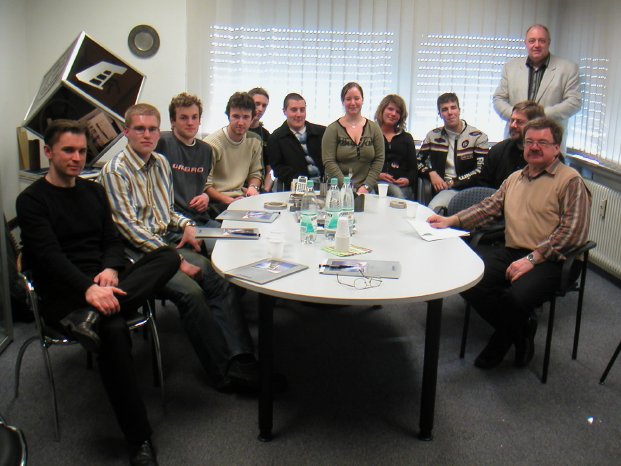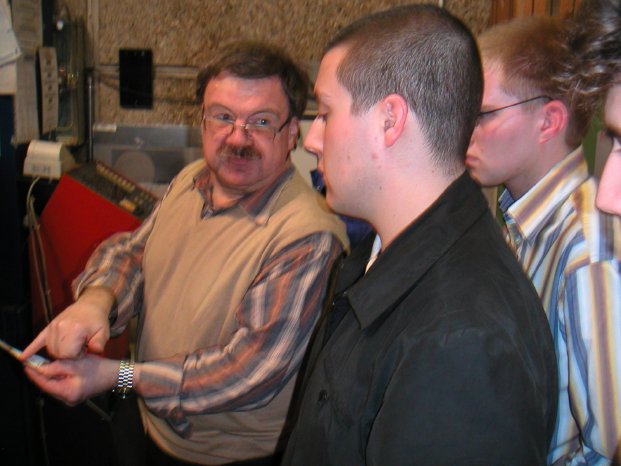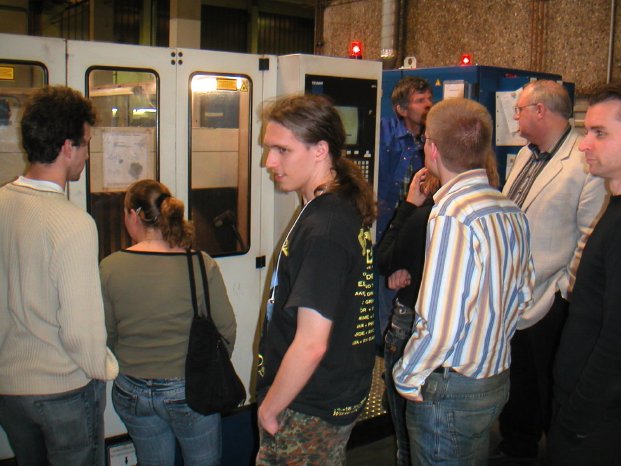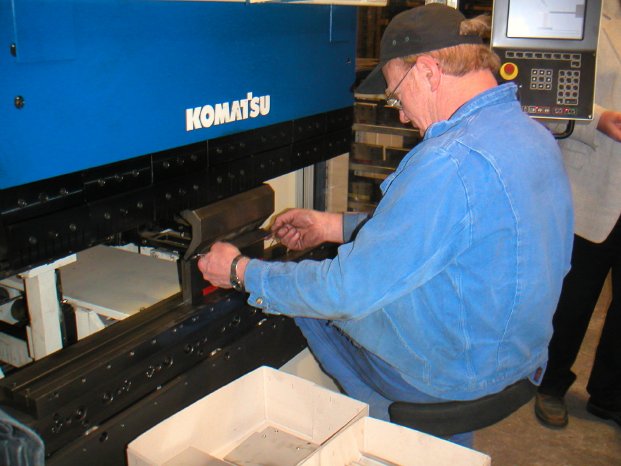German A-level students spent their week-end taking part in a specially designed training course on MEDUSA4, the globally renowned 2D/3D CAD system developed and marketed by CSG, at the company’s training centre in Moers.
“MEDUSA4 is a comprehensive software suite, which allows designers to engineer everything from a simple component through to an entire airport logistics system,” explains Michael Schroer, the company’s Managing Director.
In spite of exam pressures, students sacrificed their free time for an opportunity to take part in a professional training course, which usually comes at considerable expense. Robin Bielcke, one of the students, says, “It was great to learn something outside of the classroom which applies to what we do at school. And being served drinks and biscuits was fab!” A fellow student, Friederike Marx, adds, “It made it much easier for me to imagine what it would be like to be a design engineer or a software developer.”
According to their teacher, Karsten Schmidt, the day slotted perfectly into his Technology class curriculum. “My students designed a screening device for mobile phones, which we needed for carrying out a number of measurements as part of an experiment - so we’re not talking about theoretical design exercises here. Once the component design was finished, the devices were manufactured and used in the classroom.”
“The students were highly motivated and worked with genuine concentration.
They really enjoyed using MEDUSA4, and were quick to put their lessons into practice,” says Michael Schroer, who was very pleased with the results. One of his main objectives was to offer students a glimpse of real life design and manufacturing processes. Karsten Schmidt adds, “While MEDUSA4 is very comprehensive and versatile, you can also cut right back to the basic 2D module. That's great for me because it means I can already deploy the product in year 7.”
The company Schages of Krefeld, which specialises in precise CNC laser cutting techniques, underlined its commitment to tomorrow’s engineers by offering to manufacture the screening devices, complete with each student’s name, free of charge. Students got to watch the entire manufacturing process, while learning more about the basics of laser technology and its practical applications.
The joint project served as a starting point for future initiatives of this kind, which CAD Schroer is keen to carry out with local schools and other interested educational establishments. “We want to motivate students to consider technical professions, because that’s where we often see a lack of high calibre people - in Germany, as well as in many of the other countries where we operate, including France, the UK and Italy,” concludes Michael Schroer.




